




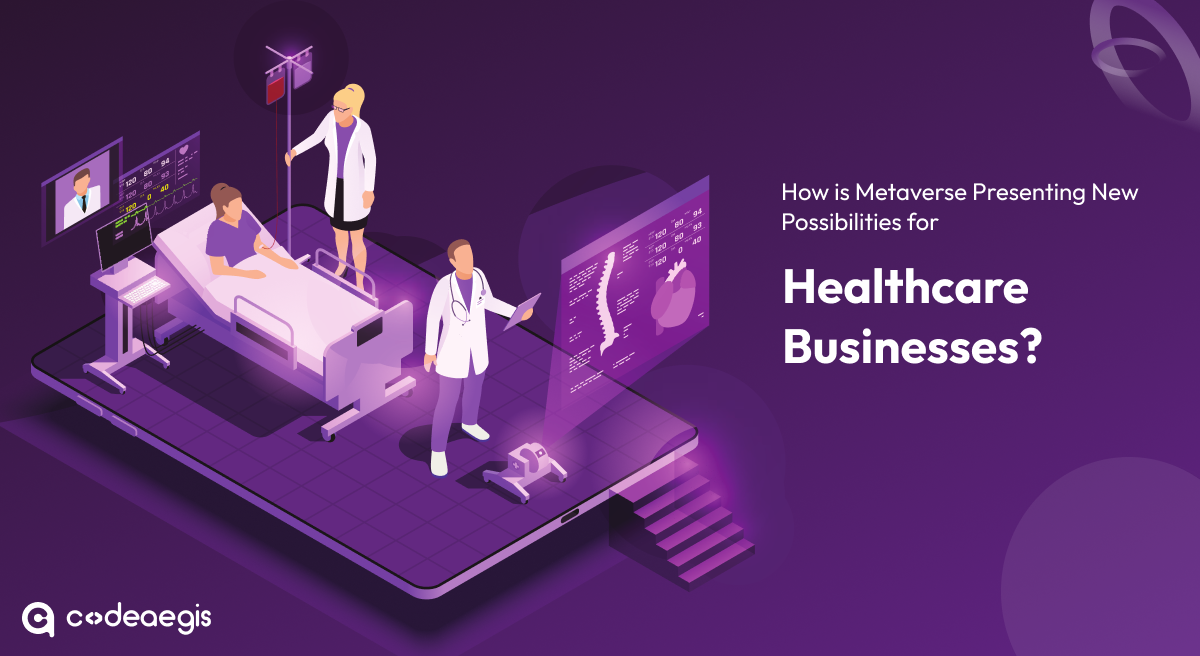
- June 21, 2023
- 32 Views
In the augmented reality world, the metaverse concept has gained significant attention. It represents the convergence of physical and virtual spaces, providing users with a platform to interact and engage in many digital activities that offer real-time experiences.
With the increasing demand for advanced Metaverse solutions, the demand for a trusted app development company has also increased.
The global Metaverse in Healthcare market is projected to reach USD 5.06 billion by 2030, growing at a CAGR of 34.8% from 2022. Over 74% of US adults are expected to join these virtual spaces.
As the metaverse continues to evolve, it has opened up new possibilities in the field of healthcare by combining technologies such as artificial intelligence (AI), virtual reality (VR), augmented reality (AR), Internet of Medical Things (IoMT), quantum computing, and edge computing.
This convergence could revolutionize healthcare delivery services and improve patient care outcomes.
Emerging Changes in Metaverse Healthcare
The impact of metaverse healthcare can be seen in various areas where AI, VR, and AR are being leveraged to transform traditional healthcare practices. Some notable changes include:
- FDA Authorization: After extensive medical trials and studies, the Food and Drug Administration (FDA) has authorized healthcare providers to use iPad and iPhone games to assist children with Attention Deficit Hyperactivity Disorder (ADHD) aged 8-12 years. This is made possible through healthcare services provided within the metaverse.
- Augmented Reality Surgeries: Neurosurgeons at John Hopkins University have successfully performed augmented reality surgeries on living patients. This technology provides surgeons with real-time guidance and enhanced visualization, leading to more precise and effective surgical interventions.
- Fundamental VR Integration: Digital health companies utilize the metaverse by integrating VR technology to train surgeons. This includes the creation of virtual classrooms, known as "Teaching Spaces," where multiple users can participate in interactive meetings and learning sessions. Such virtual environments enhance the training experience and foster collaboration among healthcare professionals.
Opportunities in Metaverse Healthcare
The metaverse offers significant opportunities for the healthcare sector, with the potential to improve various aspects of medicine.
By integrating technologies like VR, AR, AI, and the IoMT, healthcare providers can leverage these tools as front-line solutions, providing a range of benefits. Let's explore some of the opportunities presented by metaverse healthcare:
- Telehealth Expansion: The metaverse enables expanding telehealth services beyond traditional telemedicine. Virtual medical technology within the metaverse allows healthcare providers to conduct thorough examinations of patients in virtual environments, potentially leading to early detection of health conditions.
Metaverse healthcare for telehealth consultations can also overcome geographical limitations, providing access to healthcare services in areas with medical accessibility shortages. - Medical Education and Training: The metaverse offers immersive medical training and education opportunities. Students, trainees, and professionals can explore human anatomy and medical procedures through virtual reality.
Additionally, the use of digital twins—a virtual representation of patients, simulations, processes, objects, and systems—can aid in the development of testing dummies and predict patient responses to medication and post-surgical recovery or rehabilitation. - Advanced Surgical Interventions: Surgeons and surgical specialists are already implementing AR, VR, and AI technologies within the metaverse to perform minimally invasive surgeries.
These immersive technologies provide a 3D view of the patient's body, allowing surgeons to plan and perform operations virtually. AR/VR simulations also serve as a safe environment for training surgeons, allowing them to practice complex procedures and refine their skills. - Improved Mental Health Treatment: Metaverse healthcare can revolutionize mental health treatment. Psychotherapists, psychiatrists, and counselors can use immersive experiences within the metaverse to treat patients with various mental disorders, such as anxiety, psychosis, and eating disorders.
Furthermore, metaverse healthcare can improve access to mental health services for individuals with chronic conditions residing in rural areas. - Blockchain Implementation: Blockchain technology is crucial in protecting and managing confidential and significant healthcare data. Its implementation within metaverse healthcare can enhance the security and privacy of patient information and facilitate seamless transactions and data sharing.
Blockchain technology provides a decentralized and transparent platform, ensuring the integrity of healthcare data within the metaverse. - Digital Twins in Healthcare: The concept of digital twins extends to the metaverse in healthcare, allowing for the creation of virtual counterparts of patients and medical equipment.
This technology enables healthcare providers to understand patients' conditions better, predict recovery outcomes, and simulate treatments. Digital twins have the potential to enhance decision-making, improve patient outcomes, and optimize resource allocation within the healthcare metaverse.
Challenges in Metaverse Healthcare Integration
While metaverse healthcare presents promising opportunities, it also faces several challenges that need to be addressed for successful integration. These challenges include:
- HIPAA Compliance
HIPAA compliance is crucial for protecting sensitive patient data. As metaverse platforms are not consolidated into one entity, healthcare organizations must stay updated on HIPAA guidelines across different platforms to ensure patient data security and compliance.
- Interoperability: Interoperability remains a significant challenge in the healthcare industry and extends to the metaverse. Ensuring seamless collaboration and compatibility between different hardware and software within metaverse healthcare environments requires concerted efforts and standardized protocols.
- Deficiency in Standards: The metaverse lacks defined standards specific to healthcare. Developing comprehensive standards for healthcare in the metaverse will be a complex and time-consuming task that requires the collaboration of various stakeholders. Establishing these standards ensures consistency, quality, and interoperability in metaverse healthcare.
- Increased Expenditure: Creating an adequate metaverse healthcare infrastructure requires substantial financial investments. Healthcare organizations must allocate software, hardware, staff training, technology integration, and ongoing maintenance resources. The associated costs can pose challenges, particularly for smaller healthcare organizations with limited budgets.
How Can CodeAegis Help in Metaverse Healthcare App Development?
Our metaverse healthcare app development process follows an agile approach, ensuring a seamless journey from concept to launch. Here's a glimpse of the process:
- Understanding Your Needs: Our metaverse experts engage in in-depth discussions to capture your project requirements and vision, setting the foundation for the development phase.
- Designing with Precision: We create an exceptional user experience by defining the app's aesthetics, UI/UX strategy, and feature prioritization. This stage involves crafting a well-defined scope of work and emphasizing your unique value propositions.
- Development Unleashed: With a solid release plan and clear scope, our development team sets out to build an MVP (Minimum Viable Product). This approach allows efficient time management while prioritizing core features for a swift market launch. Feedback-driven enhancements drive the development of subsequent versions.
- Testing and Seamless Deployment: Rigorous testing methods, including UX, functionality, performance, device compatibility, and security, ensure a high-quality product. Once all issues are addressed, the app is deployed across various platforms, ensuring a smooth user experience.
- Ongoing Support and Maintenance: Our commitment doesn't end with the launch. We provide continuous support by monitoring app performance and tracking key performance indicators through advanced analytics. We promptly address any issues and apply necessary improvements, ensuring your Metaverse healthcare app remains optimized and effective.
Conclusion
Metaverse healthcare represents a convergence of AI, VR, and AR technologies, opening up new possibilities for the healthcare sector. From telehealth expansion to advanced surgical interventions and improved mental health treatment, the metaverse offers numerous opportunities to enhance healthcare delivery and patient outcomes.
However, addressing challenges such as compliance, interoperability, standards development, and financial considerations is crucial for successfully integrating metaverse healthcare.
By overcoming these challenges, the healthcare industry can leverage the metaverse's potential to revolutionize healthcare delivery and improve patient care. Also, hiring mobile app developers with expertise in AR and VR technologies is always recommended to ensure the successful implementation of metaverse healthcare solutions.
FAQs
Q: What is the metaverse in healthcare?
The metaverse in healthcare refers to using virtual and augmented reality (AR & VR) technology to create immersive digital environments where patients, medical professionals, and students can interact and engage with medical data innovatively. It enables various applications such as therapy, remote consultations, medical training, and patient education.
Q: How does the metaverse impact healthcare?
The metaverse has a positive impact on healthcare in several ways. It facilitates immersive medical training, allowing realistic simulations of medical scenarios for students and professionals.
It also enhances patient care by enabling faster and more effective delivery of healthcare services. Additionally, the metaverse can be utilized for therapy and patient education, providing interactive and engaging experiences.
Q: What are the benefits of metaverse in healthcare?
Metaverse healthcare offers numerous benefits, including cost savings compared to traditional treatment methods, improved patient outcomes through increased provider engagement, and enhanced collaboration among healthcare stakeholders. It also enhances patient satisfaction by providing better access to high-quality medical services.
About Author
You May Also Like

How is Metaverse Impacting the Future of eCommerce?
Lately, the tech world has been abuzz with talk of the Metaverse, a groundbreaking concept that promises a shared virtual space where people can interact and engage with one another. This futuristic i

Steps to Keep in Mind To Build Your Next Gaming App With Zero Coding!
Do you want to build a simple app for your business? Do you want to create an app that enhances the experience of users who play games on their smartphones? Whatever your reason, I have created this g

Unveiling the Types of Blockchain Projects Reigning the Decentralized Economy
As blockchain technology continues to evolve, so too does the landscape of projects built on its foundation. The worldwide Blockchain market is predicted to expand at a CAGR of 42.8% (2018-2023), dire

What Is DeFi? Guide to Decentralized Finance
Decentralized Finance (DeFi) is a modern and evolving region of finance that is less centralized and more open to innovation and collaboration. DeFi enthusiasts laud its prospect of disrupting convent

Revealing Starbucks Marketing Strategy and What You Can Learn From It?
We all know that Starbucks is one of the most recognized coffee chains worldwide. It has over 24,000 stores in more than 70 countries. But why is Starbucks successful, and what marketing techniques do

Create a DeFi Staking Platform in 2023: A Complete Tutorial
DeFi is a new kind of investment that’s taking the world by storm. So what is it? Essentially, DeFi is a digital asset class that allows you to invest in cryptocurrencies and other digital asset

Benefits of NFT Gamification To Transform Gaming Industry
In recent years, the gaming industry has seen a surge in popularity, with many gamers turning to online gaming platforms and console games in order to escape reality. With so many people playing video

A Guide to Blockchain App Development
Blockchain technology has been a hot topic recently due to its potential to revolutionize various industries. Blockchain is a distributed ledger technology that ensures transparency, security, and dec

Everything You Need to Know About Android 13 Beta 4
Google released Android 13 beta 4 to the public, and with it comes a slew of new features and updates. In this article, we'll walk you through everything you need to know about the latest version of A

Digital Transformation With AI. Is your Organization Ready?
Do you know what digital transformation with AI is and how it can impact your business? Organizations today are under pressure to digitally transform to stay competitive. This digital transformation

A Guide on How to Hire a Team of Remote Developers
Hiring a team of remote developers can be a daunting task, but it doesn't have to be. With a little bit of planning and the right approach, you can find the perfect candidates to build your dream prod

How is Metaverse Presenting New Possibilities for Healthcare Businesses?
In the augmented reality world, the metaverse concept has gained significant attention. It represents the convergence of physical and virtual spaces, providing users with a platform to interact and en

How To Create A Money Transfer App? Everything You Should Know
Nowadays, the financial industry has encountered massive digitization, and mobile apps play a significant role in it. There are a wide variety of money transfer apps available, catering to the needs a

The Rise of Progressive Web Apps (PWA): Enhancing User Experiences
In today's digital world, businesses must keep up with ever-increasing consumer expectations and find new ways to engage their audience. That's where Progressive Web Apps (PWAs) come in. PWAs are a r

Top New Blockchain Technology Trends to Follow in 2023
Picture this - a world where business transactions are seamless, secure, and transparent. This might have seemed like a distant dream before the advent of cryptocurrencies and blockchain technology, b

How to Create a Payment Gateway? Everything You Should Know
Are you aware that the world is going through a significant shift in the way we make payments? According to a recent report by Deloitte, the total value of digital payments worldwide is estimated to r

A Complete Guide to Implement AI and Machine Learning in Your Existing Application
When it comes to developing an app, there's a lot to consider. Not only do you need to create a user-friendly interface and design, but you also need to make sure your app is able to meet the demands

5G Launch Will Revolutionize the Mobile Industry: Know How!
Prime Minister Narendra Modi eventually launched 5G in India at the 6th edition of the IMC (India Mobile Congress). Reliance Jio and other telecom organizations documented the various use cases of 5G
_replaceDesigningreplaceforoice-EnabledreplaceWebreplaceExperiences.png)
Voice User Interface (VUI): Designing for Voice-Enabled Web Experiences
Imagine a world where you can speak your thoughts and desires, and the digital realm responds promptly, seamlessly integrating into your daily life. Whether you want to search for information, contro
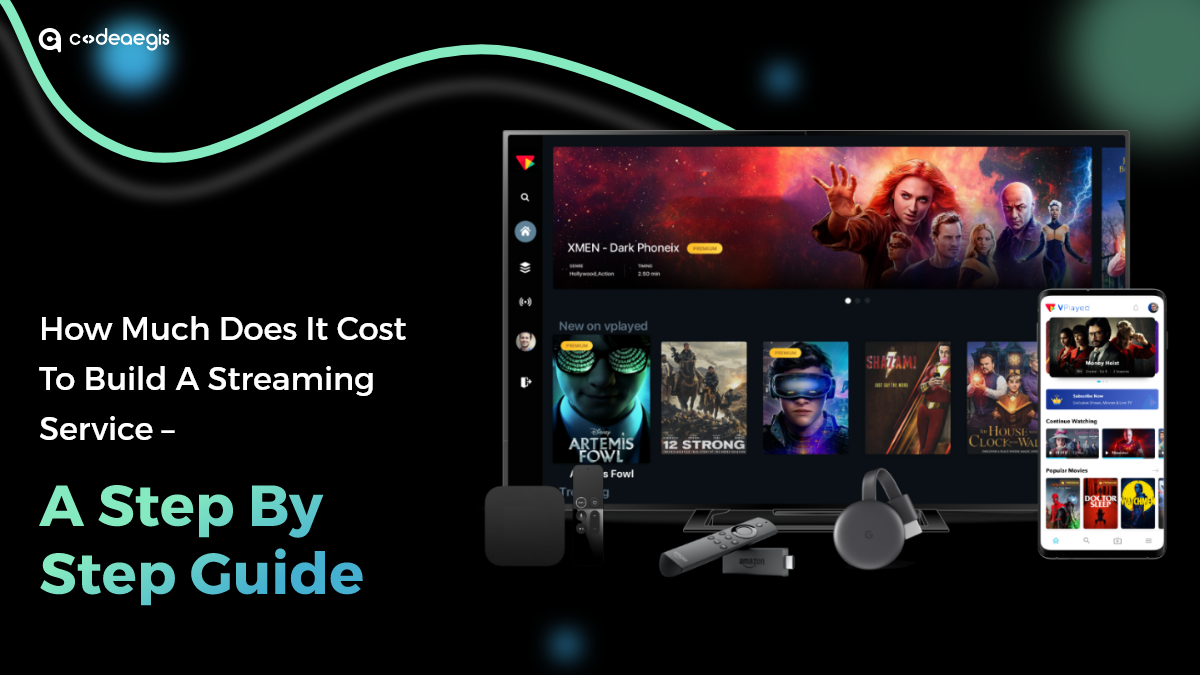
How Much Does It Cost To Build A Streaming Service – A Step By Step Guide
The rise of online video streaming services has revolutionized the entertainment industry, prompting businesses worldwide to explore the possibility of launching their own platforms. With giants like

How to Build a Food Delivery App like Glovo? Everything you should know!
Have you ever found yourself in a situation where you desperately needed a product or service but didn't have the time or energy to go out and get it? Well, fear no more because on-demand delivery app

9 Things Users Want from a Mobile App
The mobile app market has grown to a staggering size, with over 1.8 million apps available in the Google Play Store and Apple App Store combined. Mobile apps have become a necessity for peop

iBeacon App Development - Key Challenges And Amazing Tips
Technology is proliferating with the advancement of time. The introduction of smartphones has changed the whole scenario right from communication to shopping. Users are now able to shop without moving

Real Estate Mobile App Development: A Complete Guide
The world is digitizing at a very rapid pace, and in such a scenario, real estate businesses must also go digital to stay ahead of the competition. One of the best ways to digitize your business is de

Top Ways to Use Augmented Reality in Mobile Applications in 2022
Augmented Reality and Virtual Reality are the two leading buzzwords in the technology era. What began as a completely new, significantly different technology has rapidly revolutionized into something

Latest Technology Trends That Trigger Android App Development Process
Do you run your own business and want to build an Android app? If yes, you must know about the latest technology trends playing a significant role in the android app development process. Technology i

What are the Benefits of Using Digital Technology in Mobile App Development
With the ubiquity of smartphones and tablets, it only makes sense that mobile app development - which is the process of creating applications for smartphones and tablet devices - is becoming more popu

What Makes Flutter Ideal For Cross-Platform App Development? - A Complete Guide
Table of Contents 1. What is Flutter? 2. Why Choose Cross-Platform Development? 3. Why is Flutter the Best Platform to Make Cross-platform Applications? 4. How Much Does it Cost to

How to Launch a Metaverse Casino Game Like Blackjack 21- A Detailed Guide
The world of gaming is rapidly evolving, and the latest buzzword is "metaverse." The term refers to a virtual world where users can interact with each other and digital objects in real time, using imm

Node.JS 19 is Available! Here is What You Need to Know
The launch of Node.js 19 is now available! It substitutes Node.js 18 as the current launch line, with Node.js 18 being encouraged to long-term support (LTS) next week. What do these two launches mean

How to Make Learning Engaging through Gaming Technology?
What if you can combine the fun of gaming and the educational value of learning? This is an idea that has been gaining popularity in recent years as technology advances. There are several challenges

Dubai Rest App: Your All-in-One Solution for Real Estate Services
Did you know that Dubai's prime residential market is projected to experience the world's strongest growth in 2023? The Middle East is buzzing with opportunities, especially in the realm of mobile app

How to Build an International Money Transfer App?
The introduction of online payment applications has changed how people perform financial transactions. A mobile phone with a banking app lets you quickly resolve various financial matters.

What are dApps (Decentralized Apps) in Blockchain? Everything You Want to Know!
Blockchain iѕ a technology that enables thе creation оf digital property with a secure record оf ownership. It’ѕ the backbone of Bitcoin, thе firѕt аnd most well-known cryptocurrency. B

WWDC 2023 Overview: A Glimpse into Apple's Future
An extensive background working in Tech, Travel, and Education Industries. Currently involved in entire business operations process: Benefits strategy and implementation, systems integration, Human Re

Top 11 Advantages Of iOS Application Development For Your Business
Mobile applications play a vital role in the development of multiple businesses in this digital world. Most companies are investing in iOS app development to strengthen their market appearan

Augmented Reality Trends of 2023: New Breakthrough in Alluring Technology
Technology has come a long way in the past decade, and augmented reality (AR) is one of the most exciting development fields. AR technology superimposes digital content into the real world, creating a
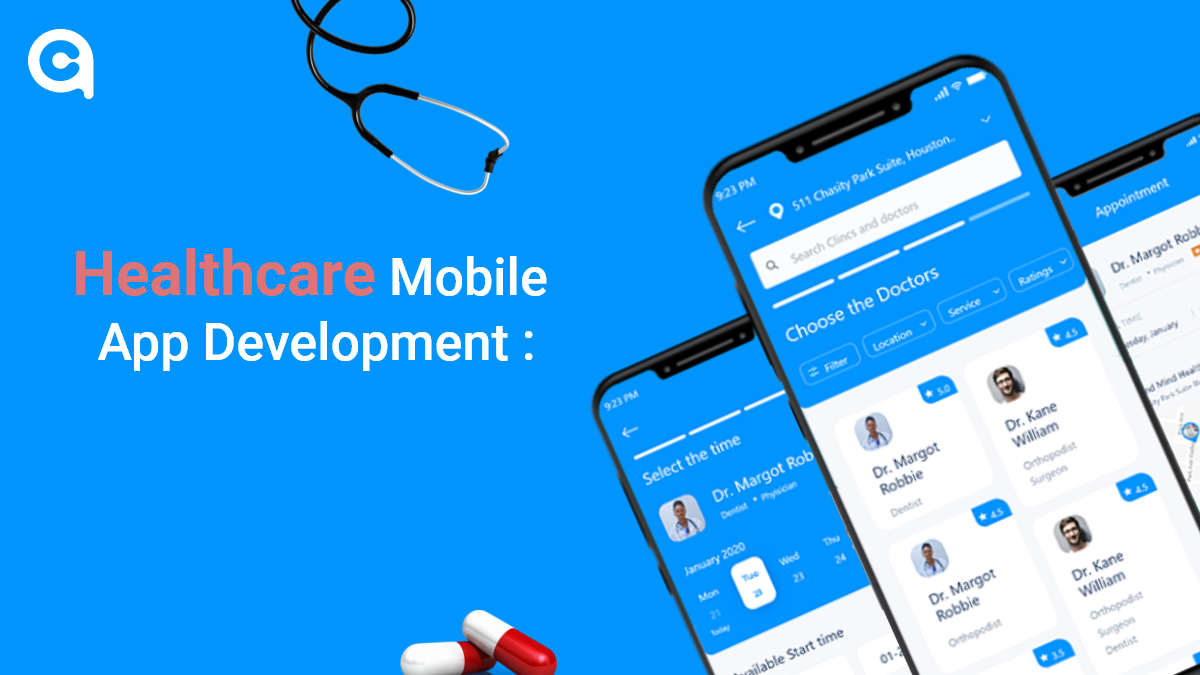
Healthcare Mobile App Development: A Complete Tutorial
The healthcare industry is one of the most rapidly changing and growing industries worldwide. Mobile devices and apps have drastically changed how providers and patients interact and communicate.So, i

Legacy Application Modernisation: What It Is, Why You Need It, And How To Do It?
Mobile app development is quickly becoming a necessity for businesses. As the world becomes increasingly digital, companies of all sizes rely on mobile apps to reach customers and increase customer en

Benefits and Use of Blockchain Technology in the Banking Industry
Picture this: a world where traditional banking transforms into a cutting-edge, efficient, and transparent system that leaves everyone in awe. Blockchain, often met with skepticism and uncertainty, is

How to Build a Taxi App Like Uber or Careem? Everything You Should Know!
Gone are the days when people used to wave down a taxi on the street or wait for one at the airport. With the advent of technology, people can now book a taxi with just a few taps on their smartphones

Unveiling Top App Prototyping Platforms that You Must Use in 2022
When it comes to mobile app development, one of the most important things you need to consider is the prototyping process. This will allow you to create a working model of your app so that you can tes
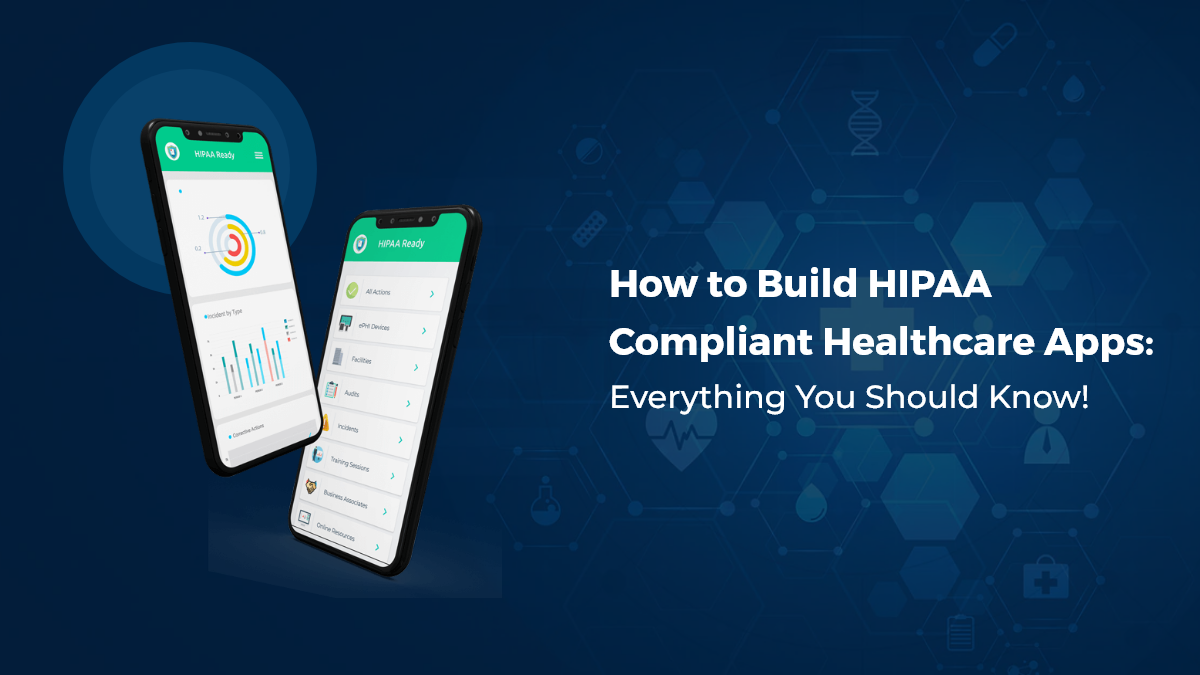
How to Build HIPAA Compliant Healthcare Apps: Everything You Should Know!
If you’re in the healthcare industry, then you know that data privacy and security are of utmost importance. In order to protect patients’ information, the Health Insurance Portability and

Guide to Design Mobile App in 2022 | Everything You Need to Know
Are you looking to design a mobile app in 2022? Well, mobile application development is an ever-changing field, and it can be hard to keep up with the latest trends and best practices. But w

Why Does Your Business Need a Food Delivery App and How to Get Started?
Businesses after COVID are going through several changes, and the food industry is no different. Restaurants that have been doing dine-in are now struggling to keep up with the demand for delivery and

Flutter vs. React Native: Which One is Better for Mobile App Development?
The two hottest frameworks in the mobile app development world are Flutter and React Native. They’re both cross-platform solutions that allow you to write code once and deploy it to Android and

How to Develop a Video Conferencing App like Zoom?
Depending on what niche you’re in, video chat apps are becoming increasingly common in the world of business and technology. Whether it’s a small startup company or a multinational corpora
.png)
How to create the first gaming app in 2024?
Application development is essential to fostering business efficiency while accepting new changes. Depending on the specific requirements, 85% of businesses rely on software development solutions to s

The Ultimate Guide to MVP Development
As the world of startups becomes increasingly competitive, building an MVP is crucial for entrepreneurs looking to test their ideas and launch successful businesses. By creating a minimum viable prod

Top 10 Reasons to Invest in Gaming App Development
The gaming industry is proliferating with the advent of smartphones and PCs. Every age group, from children to adults, is well-engaged and fond of online gaming. The rapid evolution of mobile gaming a

Find Out How Our Clients Reviewed Us On Clutch
It's no secret that the digital world has transformed many aspects of our lives, and it is only going to continue changing in ways we can't even imagine yet. To help businesses keep up with this rapid

How Can Wearables Influence Mobile App Development Future?
In the last few years, wearables have become increasingly popular. Fitness trackers, smartwatches, and even smart glasses are becoming more and more commonplace. And as the technology improves and bec

The Benefits of Integrating AR and VR in E-Learning Platforms
Imagine a classroom where history comes alive in the 3D model of historical events. Biology students can explore the unique complexities of a cell as they have practiced it with real-world examples, a

Top Tech Trends That Will Define the Next Decade of Business
By 2024, we all know that technology will be the future. What excites me the most is that technology has covered all the dimensions of businesses, enabling them to attain their potential and efficienc

Top 7 Blockchain App Development Ideas to Boost up Business
Want to establish a new business or improve an existing one? You should consider using blockchain technology Being a distributed database, Blockchain allows for secure online transactions. This techn

ChatGPT: Unlocking A New Wave Of AI-Powered Conversational Experiences
Table of Contents 1. What is ChatGPT? 2. What Are the Top Benefits of ChatGPT? 3. How Does ChatGPT Work? 4. Challenges With ChatGPT 5. ChatGPT and the Future of AI 6. Final Thoug

iOS App Development Guide for Business
Businesses these days are looking to have an edge over their competition by having a strong online presence. A website is not enough anymore, and many companies are turning to mobile apps as a way to

How To Design A Social Media App and Features that Make it Popular?
Social media apps are all the rage these days. People use them to connect with friends and family, to learn about new products and services, and to stay up-to-date on the latest news. But as popular a

Blockchain and Web Development: The Intersection of Security and Trust
Blockchain technology and web development are two powerful innovations that have the potential to transform our world. While they may appear distinct, they share similarities and can work together to
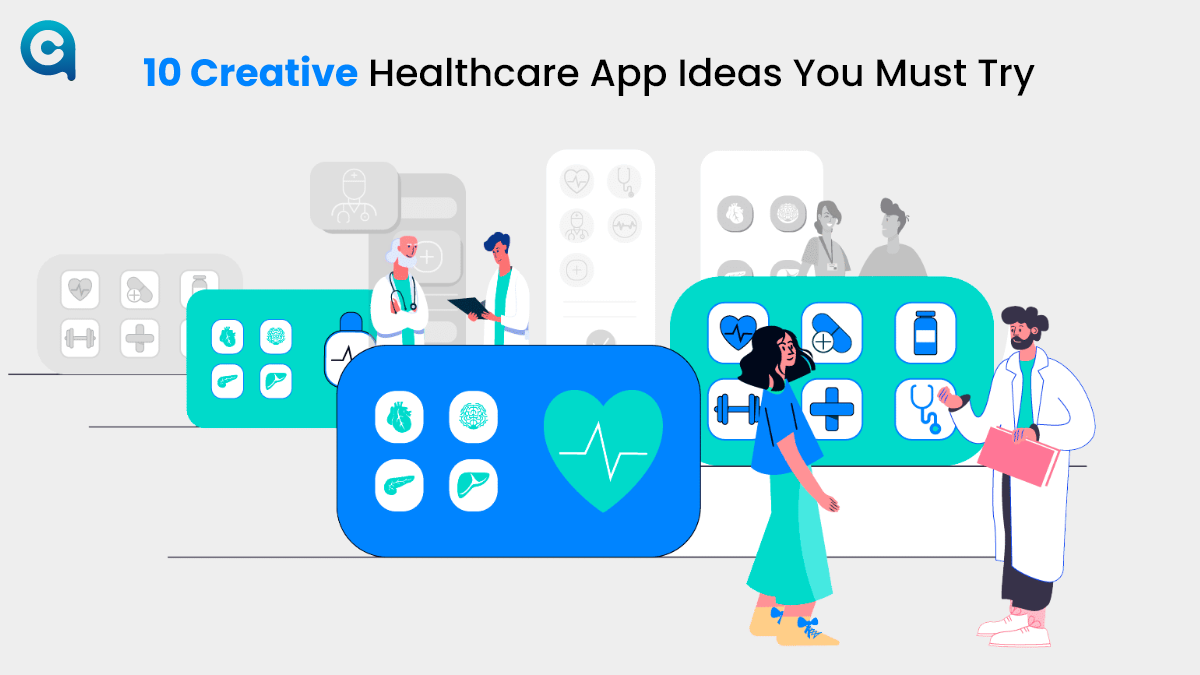
Healthcare App Ideas that Will Help You Succeed in 2022 and Beyond
As we head into the future, more and more people are looking to find ways to improve their healthcare. And with good reason - healthcare can be expensive, and it can be difficult to get the right care

How to Build a Fintech App - Everything You Should Know!
With the advent of technology, the financial industry has experienced a massive transformation in the past few years. Fintech applications have revolutionized the way we manage and invest our money.
Leave a Reply
Your email address will not be publishedDO YOU HAVE ANY PROJECT
Let's Talk About Business Solutions With Us
India Address
57A, 4th Floor, E Block, Sector 63, Noida, Uttar Pradesh 201301
Call Us
+91 853 500 8008
Email ID
[email protected]










